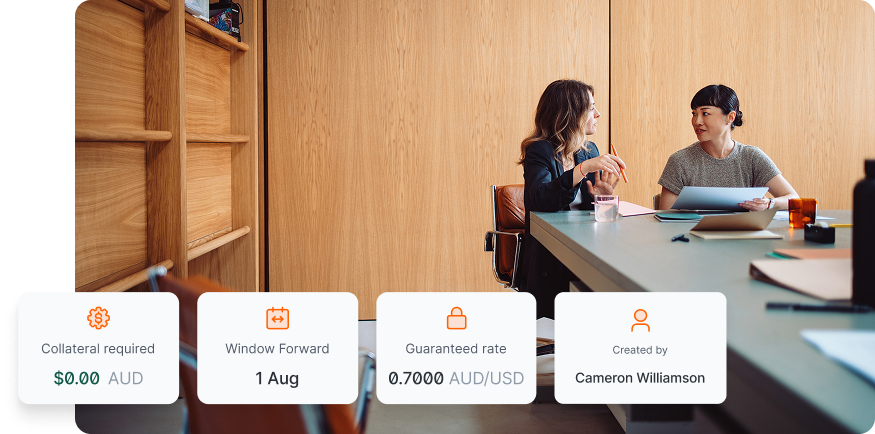The business financial landscape is becoming both faster and more dynamic, and becoming increasingly complex. As your company grows and expands internationally, you need to process payments in various forms, manage cash flow across different countries, and deal with multiple currencies.
It’s a double-edged sword. You benefit from near-instant payments and a wide range of payment options, but these create new security concerns, and inefficiencies if they fall outside your existing processes. These challenges are seriously compounded if you’re using classic business bank accounts.
This article explores why businesses of all sizes should consider moving beyond a standard bank account. As we’ll see, investing in a dedicated payments platform is now essential to manage the complexities of today’s financial ecosystem.
From improved cash flow management to enhanced security, we’ll see the advantages a dedicated payments management platform offers, and how it can help businesses scale and grow in a rapidly evolving global market.

Where business bank accounts fall short
Traditional business bank accounts perform basic banking functions well. They’re a safe place to store company funds, and many offer good financing when you need extra cash.
But they’re not designed to handle fast, regular, high-volume transactions, and lack the dynamism required to pay suppliers and receive payments smoothly. Worse, reconciling bank transactions is a constant headache for accountants.
Bank accounts are really designed for domestic use and often require multiple accounts and processes to manage international payments, payroll, vendor transactions, and more. This causes inefficiencies, delays, and higher costs.
Relying solely on a standard business bank account can mean:
- Slow processing times for international transactions
- High fees for currency conversions
- Limited control over who spends what, and when
- Inadequate fraud protection or oversight
All of which can impact your bottom line and your ability to scale effectively.
What is a payment management platform?
A dedicated payment management platform is a key tool in company spend management. Accounts payable and receivable are key challenges for finance teams, particularly where international transactions and currency conversions are involved. This is exactly what these platforms are built to fix.
The right platform should automate most — if not all — manual steps in these processes. This includes payments to international vendors, employee reimbursements, and processing payments from customers across multiple countries.
Because payment management platforms are specifically built for these tasks, they’re far more effective than your business bank account and tracking payments with spreadsheets.
8 reasons why you need a company payments platform
A dedicated platform lets you consolidate payments, manage currencies more efficiently, and reduce administrative overhead. This in turn improves operational efficiency, enhances security, and ensures faster processing. All of which are essential for modern business success.
Here’s a closer look at eight strategic benefits to using a dedicated payments platform instead of (or as well as) a classic bank account.

- 1. Streamlined payment processing
As your business grows, financial transactions get more complex. You soon find yourself juggling multiple accounts — both domestic and international — which can lead to scattered payments, manual tracking, and discrepancies across systems.
These accounts aren’t designed to work with one another. So you’re constantly copying/pasting data to keep your books in order, and you lack visibility over what’s moving in and out.
Fragmented processes result in inefficiencies and an increase in basic errors. And it only gets worse as you scale.
But a dedicated payments platform consolidates all payment activities into a single system. This centralised solution lets you process payments across different accounts, vendors, and departments, without the hassle of switching between platforms or the risk of duplicate transactions.
With an integrated payments platform, you can automate and track payments in real time, eliminating much of the administrative burden associated with manual processes.
- 2. Efficient, flexible global payments
Today, even small businesses have to deal with the global economy. This includes paying foreign suppliers, processing payments from international customers, and managing employee payroll in different currencies.
Traditional bank accounts are often limited by currency restrictions, high fees, and slow processing times, especially for cross-border transactions. These limitations can create significant delays, leading to cash flow issues and extra costs that erode profit margins.
A dedicated payments platform gives you greater flexibility. These modern platforms are designed to handle international transactions in multiple currencies, often with competitive exchange rates and lower fees than traditional banks. This lets you process cross-border payments quickly and efficiently, avoiding the high costs typically associated with international money transfers.
And the right platform helps clarify currency conversions, so you’re always aware of the costs involved in cross-border payments.
- 3. Improved security and fraud prevention
With the increasing frequency of cybercrime and financial fraud, you need to take financial transaction security seriously. And while traditional bank accounts do provide protection from major fraud or default, they also have certain vulnerabilities.
Business bank accounts (and credit cards) often share the same flaws:
- Shared company cards make it hard to monitor spending
- The same card details end up on dozens (or hundreds) of vendor websites
- You have little real-time oversight, unless you constantly scour the bank account online
- Account and card statements take many weeks to arrive
And because accountants usually reconcile payments at the end of the month, you may not spot suspicious or mysterious transactions until it’s too late.
Businesses need a payment management platform high-level encryption and fraud detection protocols to protect against unauthorised access and malicious activities. These include real-time monitoring of transactions for suspicious activity, multi-factor authentication (MFA), and user access controls that ensure only authorised personnel can manage payments.
And you should never need to share the company card, write PIN numbers on a Post-It, or use the same details for every online purchase.
Good payment platforms are designed to detect anomalies and prevent fraudulent transactions before they can cause damage. As a result, you can be confident that your payments are secure and financial data is protected.
- 4. Customisable payment methods
Every business has its own ways of working and unique payment needs. Some businesses may require automated invoicing and scheduled payments for regular bills, while others may need bulk payment processing for a large number of employees or contractors. Traditional business bank accounts typically lack the flexibility to accommodate these specialised payment requirements.
A dedicated payments platform lets you tailor payment solutions to suit your business. Whether you require recurring billing, large-scale payroll processing, or advanced payment scheduling, a payment platform can offer these services with minimal effort.
Plus, you can automate time-consuming tasks such as invoicing, tax calculations, and payment reminders, freeing up valuable time for more strategic activities.
- 5. Fast payments and smooth cash flow
Cash flow is the lifeblood of any growing business. Timely payments are essential to ensure you meet financial obligations, including paying employees, suppliers, and creditors. But traditional banking often means slow payment processing, reduced banking hours, time zone differences, and country-specific holidays.
A dedicated payments platform lets you pay (and get paid) quickly—often in real-time or within a few hours. You can choose the right global payment systems for faster transactions, including SEPA, SWIFT, CHAPS, NPP, EFT, and many more. The point is, you’re in control.
Faster payment processing lets you keep cash flow on track and avoid the disruptions that come with delayed payments. Real-time updates and transparent payment tracking let you monitor each payment, ensuring that funds are received and disbursed promptly. This is particularly necessary for payroll, or paying urgent supplier invoices.
- 6. Automated expense management
As your business grows, managing employee expenses, vendor payments, and operational costs becomes increasingly complex. Traditional methods of expense management, such as manually approving and reimbursing employee expenses, can lead to errors, delays, and even overspending. And it adds significant administrative work for finance teams.
A dedicated payments platform automates reimbursements, reporting, and even vendor payments. With a centralised system, you can set clear payment limits, monitor expenses in real time, and generate near-instant reports for auditing and compliance purposes.
The platform ensures you maintain tight control over spending, minimise errors, and reduce administrative overhead.
- 7. Better integration with accounting software
Traditional bank accounts can create headaches at the end of the month, quarter, or year. Because of their design, reconciling payments, managing financial records, and reporting for taxes can be tedious – especially when dealing with large volumes of transactions.
Many finance teams are forced to enter transaction data manually, compare bank statements with internal records, and hunt for missing receipts. All of which is not only time-consuming, but frequently leads to human error.
A dedicated payments platform should seamlessly integrate with your chosen accounting software. And if not, it will make it simple to format and export all the data you need.
These integrations ensure that your financial records are always up to date, and your accounts are reconciled automatically. The platform streamlines reporting processes, making it easier for your accounting team to manage financial data, generate invoices, and ensure that tax filings are accurate and timely.
- 8. Scalability for growth
As your business grows, so too does the volume of payments you need to process. Transactions also tend to grow in complexity – whether due to more vendors, more employees, or more international customers. This can quickly overwhelm traditional banking systems, and you can’t hope to manage more payments without more people-power. The classic system simply doesn’t scale.
You need better internal systems. A dedicated payments platform is built to scale alongside your business. Whether you’re processing a handful of payments a month, or managing thousands, a payment platform can handle large transaction volumes without compromising performance.
As your business expands, the platform will continue to provide the tools needed to maintain smooth, efficient payment processes. You can easily navigate growth without facing bottlenecks in your financial operations.
Avoid relying solely on manual effort, and you won’t need a bigger team to scale your finance operations.
Set your business up for scale
As business becomes more connected and increasingly complex, traditional bank accounts are no longer sufficient to manage global operations and high transaction volumes. The need for better, smarter finance operations is clear.
Payment management platforms offer greater flexibility, better security, faster payments, and improved efficiency – all critical components for managing modern companies.
Whether you’re making cross-border payments, managing employee expenses, or simply looking for a more effective way to streamline your payment processes, a dedicated payments platform can provide the solutions you need to support your business goals.
As you evaluate options, prioritise the flexibility, scalability, and security required to grow your business. That means smart, customisable approval workflows, user-specific payment methods, and complete control and visibility over every penny spent.
The right payments platform helps position your company for long-term success, and lets you focus on what matters most: driving growth and achieving your objectives.
How OFX can help
OFX’s expense and payments platform provides all these benefits and more. With global payment capabilities, real-time tracking, enhanced security, and customisable features, OFX lets you streamline your payment processes, manage expenses more efficiently, and scale your business for growth.
Investing in a dedicated payments platform like OFX isn’t just about convenience; it’s about setting your business up for long-term success.
Learn more and request a free demo here
This article is purely for informational purposes only and should not be treated as advice. OFX will not be held liable for any losses incurred as a result of individuals or businesses relying on the information contained in this article.
IMPORTANT: The contents of this blog do not constitute financial advice and are provided for general information purposes only without taking into account the investment objectives, financial situation and particular needs of any particular person. UKForex Limited (trading as “OFX”) and its affiliates make no recommendation as to the merits of any financial strategy or product referred to in the blog. OFX makes no warranty, express or implied, concerning the suitability, completeness, quality or exactness of the information and models provided in this blog.



